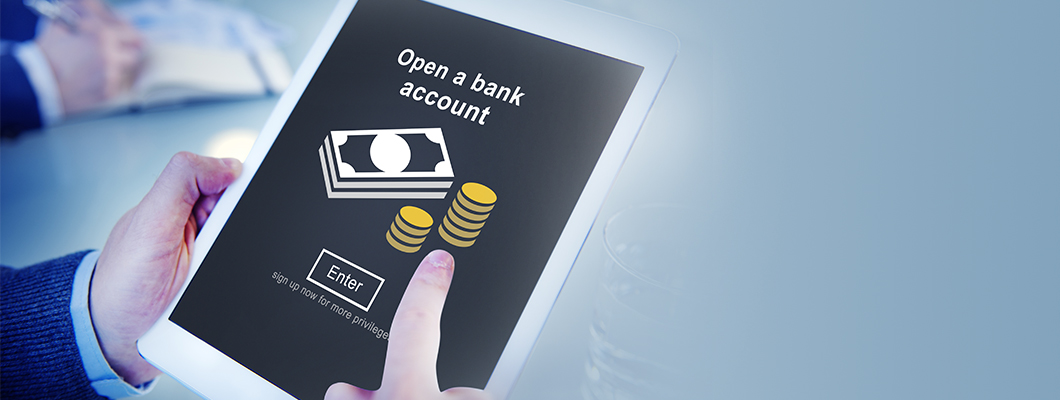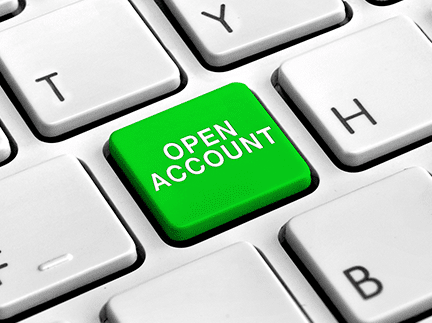Easy Steps for Bank Account Opening: A Comprehensive Guide for Beginner Customers
Easy Steps for Bank Account Opening: A Comprehensive Guide for Beginner Customers
Blog Article
Top Tips for Opening a Checking Account: Make Sure Smooth and Effective Setup
Opening a bank account may seem straightforward, yet a systematic method can dramatically boost the experience and established the stage for a successful banking partnership. By recognizing the selection of account types offered, collecting essential paperwork, and comparing banking institutions, one can prevent usual challenges.
Understand Different Account Kind
When opening up a savings account, it is vital to acquaint on your own with the various account kinds readily available. Understanding these options will enable you to choose an account that best fits your monetary demands and objectives.

Interest-bearing accounts, on the other hand, are created for conserving money and commonly use higher rate of interest than inspecting accounts. They might have withdrawal restrictions, motivating you to conserve in time. For individuals looking for a higher yield on their cost savings, CDs offer fixed rate of interest prices for a defined term, yet they require you to secure your funds up until maturation.
In addition, there are specific accounts like cash market accounts and retirement accounts, each with special attributes and advantages. By comprehensively understanding these account types, you can make enlightened choices that straighten with your monetary technique and lifestyle.
Gather Required Documentation
Collecting the needed paperwork is a critical action in the process of opening up a savings account. Proper documents not just helps with a smooth application procedure however likewise aids in confirming your identity, ensuring conformity with regulative requirements.
Furthermore, a Social Security Number (SSN) or Specific Taxpayer Identification Number (ITIN) is usually needed for tax obligation reporting objectives. Some bankss might also request evidence of address, which can be shown with energy bills, lease arrangements, or bank statements.

Moreover, if you are a minor, parental approval and recognition might be required. It's recommended to contact the particular bank concerning their paperwork requirements in breakthrough, as these can vary. By ensuring all essential papers prepare, you can quicken the account opening process and stay clear of prospective delays.
Research Study Banks and Charges
A complete comparison of numerous bankss and their cost structures is crucial for choosing the appropriate monetary establishment for your requirements. Various bankss supply a series of solutions, and understanding their charges can significantly affect your total banking experience. Begin by recognizing your banking demands, such as whether you require a checking account, cost savings account, or both.
Following, analyze the charge frameworks related to each account kind. Common charges consist of monthly upkeep costs, overdraft charges, atm machine usage charges, and international purchase fees. Some bankss might waive these charges if you keep a minimal equilibrium or set up direct down payments.
In addition, investigate any type of costs associated with account services, such as cable transfers, published declarations, or check orders. It is also smart to examine the rate of interest provided on interest-bearing accounts, as these can differ significantly amongst institutions.
Think about Online vs. In-Person
Choosing between online and in-person banking can dramatically influence your general financial experience and ease (bank account opening). Each option provides special benefits that accommodate various choices and way of livings
Electronic banking provides a high degree of adaptability and accessibility. With the ability to manage your account from anywhere using a smart device or computer system, on the internet banking enables quick transactions, balance checks, and bill payments any time. Additionally, many on-line bankss supply affordable passion prices and reduced costs because of decreased overhead expenses.
Conversely, in-person banking provides a personal webpage touch that some consumers might discover comforting. Checking out a physical branch enables direct interaction with bank reps, which can be especially useful for complex questions or monetary guidance. In-person banking additionally makes it possible for clients to deposit cash money, obtain instant aid, and construct connections with staff, cultivating a sense of trust fund.
Inevitably, the decision in between online and in-person banking should be based upon your specific requirements, comfort degree with innovation, and the specific solutions you require. Consider Click Here your financial practices and preferences meticulously to figure out which option straightens finest with your financial objectives.
Review Terms and Conditions

When assessing the problems and terms, pay very close attention to crucial elements such as fees, passion prices, and account features. Seek regular monthly maintenance costs, transaction restrictions, and charges for over-limits or early withdrawals (bank account opening). Understanding these charges can help you prevent unexpected fees and handle your financial resources more successfully
Additionally, take into consideration the rate of interest offered on cost savings or examining accounts. Higher rate of interest can dramatically impact your cost savings with time. It's likewise essential to comprehend the terms associated with rewards, benefits programs, and advertising offers, as these can improve your financial experience.
Lastly, ensure you understand the bank's policies on client service, disagreement resolution, and privacy. Familiarizing on your own with these problems will certainly empower you to make educated choices and develop a productive relationship with your bank. Putting in the time to thoroughly evaluate the problems and terms can avoid future misconceptions and foster lasting complete satisfaction with your financial experience.
Verdict
In bank account opening conclusion, a well-informed strategy to opening up a bank account helps with a smooth and effective setup process. Understanding the various account kinds, collecting needed paperwork, and looking into bankss and associated fees are crucial steps.
Opening up a bank account may seem straightforward, yet a systematic strategy can substantially enhance the experience and set the stage for a successful financial partnership.The most common kinds of accounts include checking accounts, savings accounts, and certificates of deposit (CDs)Cost savings accounts, on the other hand, are made for conserving money and typically supply higher passion prices than inspecting accounts. Begin by identifying your financial needs, such as whether you require a checking account, cost savings account, or both.
Understanding the numerous account types, collecting required documentation, and looking into bankss and connected fees are critical steps.
Report this page